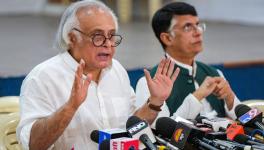Looming Uncertainty in India’s Auditing System

Image courtesy: Economic Times
BSR and Co, an affiliate of KPMG India, has resigned as auditor of two of Anil Ambani’s Reliance Group companies – Reliance Infrastructure and Reliance Power, citing concerns over corporate deposits and related-party transactions. This comes at a time of a looming crisis in India’s auditing system amid regulatory sanctions on the auditing firms.
On August 9, Reliance Infrastructure told the stock exchanges that the reasons for auditor’s resignation are the same as the ones cited in “Basis of Disclaimer” in their audit report dated June 14, 2019, while Reliance Power claimed that the reason for BSR’s resignation is in terms of “Basis for Qualified Opinion” in their audit report dated June 8, 2019. Earlier in June, another auditing firm Price Waterhouse and Co (PwC) had resigned as statutory auditor of Reliance Capital and Reliance House Finance.
This is not just the problem of Anil Ambani’s firms but a much bigger problem, especially for firms mired in controversies. According to news reports, this year, auditors of at least 17 listed companies have resigned abruptly so far. Whereas in 2018, auditors quit 48 firms listed with National Stock Exchange, which is not the case in the preceding years. Recently, Deloitte Haskins & Sells, one of the joint auditors of the cash-strapped Dewan Housing Finance Limited (DHFL), has resigned as auditor for the housing finance company.
Also watch: Frauds and Friends: How Auditors Are Enabling Crony Capitalism
This phenomenon can be attributed to the government’s recent moves with respect to the auditing companies. It started in January 2018, when market regulator Securities Exchange Board of India (SEBI) banned PwC network firms in India from auditing listed companies for a period of two years as its probe found lapses in auditing of erstwhile information technology company Satyam Computer Services Ltd between 2000 and 2008. Although SEBI’s probe took 10 years and simultaneously PwC challenged the order in Securities Appellate Tribunal, SEBI’s move has sent tremors across across auditing firms prompting many of them to resign.
Adding to this, the Infrastructure Leasing and Financial Services (IL&FS) Group’s collapse came to light in September 2018. Various ongoing probes and a forensic audit into the books of the group found numerous lapses committed by its auditors in collusion with the top management. As IL&FS fraud is the biggest in the country’s corporate world, the government appointed a new board under Uday Kotak which is currently charting out a resolution plan since October last year. Also, Ministry of Corporate Affairs has also asked National Company Law Tribunal (NCLT), Mumbai to ban these auditing firms -- Deloitte and BSR for five years for their alleged role in financial irregularities of IL&FS and later, recently, the government asked the NCLT to freeze the accounts of these auditing firms.
Perhaps to tackle the crisis, last month, SEBI, in a consulting paper, had proposed several changes to make auditors more accountable if they were to resort to resignations. However, auditing bodies argue that the new proposed norms doesn’t seem to address the real issues. As per SEBI’s proposal, auditing firms will be mandated to provide a reason for resignation. Also, SEBI had proposed that auditors cannot casually resign without finalising the audit report for the full year if they have audited previous quarterly reports of that year.
The All India Chartered Accountants’ Society (AICAS) has opposed SEBI’s proposed norms. The AICAS said in a statement, “In a large number of cases where there is insufficient accounting disclosures, audit evidence or information is not adequate for finalisation of financial statements in spite of the full effort by all stakeholders and auditors, the SEBI proposed mandate to finalise the audit report will only complicate matters.”
As per 2017-18 Prime Database data, the ‘Big 4’ audit firms PwC, Deloitte, KPMG and EY -- service a third of India’s listed companies audit business by value. These big four audit firms have also failed in their job as they have been the auditors of several global giant companies.
Also read: Amid Concerns over Auditing Practices, Govt Wants to Freeze Auditors’ Accounts in IL&FS Case
According to Anil Singhvi, founder of governance advisory firm Institutional Investors Advisory Services, the big four firms are too big to continue. Speaking on the credibility crisis in India’s auditing system, he was quoted in Bloombergquint, “In fact, they (big 4 audit firms) should be broken into smaller firms. Instead of four, make them 12-15, but break them up. They got together and acquired all the local firms to become big four. So, this whole consolidation has resulted in a monopoly and the abuse of that monopoly. On one side, the audit fees have gone up, but on the other side, the quality and standards have gone down. At the receiving end, it is the investor who is providing the money.”
While the situation demands for the revival of auditing system in the country, the regulator’s moves doesn’t seem to be addressing the crisis.
Get the latest reports & analysis with people's perspective on Protests, movements & deep analytical videos, discussions of the current affairs in your Telegram app. Subscribe to NewsClick's Telegram channel & get Real-Time updates on stories, as they get published on our website.
























